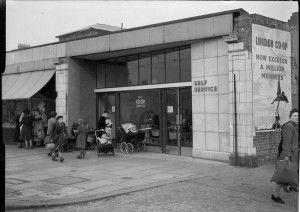
The first characteristic of an organic Christian society is that it be a community. We must avoid the formation of inward-turned groupings of individuals that seek to artificially create an organic community.
In reality, these are not communities but co-ops. This is discussed in Return to Order in dealing with the co-op mentality.
This co-op mentality uses the business model of a farmer co-op as the model for a community. Co-ops are great for farmers but not for communities. Co-ops are run to confer benefits, voting privileges and profits. As long as an atmosphere of well-being and happiness exists, co-op members renew their membership with great enthusiasm.
However, in times of trials, these co-ops, like bankrupt businesses, break down.
One reason they fail is that they are so inwardly turned. When people are not turned toward an outside enemy, they tend to look for squabbles inside. So many of these co-ops end in great internal battles, as someone has to be assigned the blame for failure. Many times, they are sustained by strong charismatic leaders and dissolved when these strong leaders or priests pass on.
In his book, The New Agrarian Mind: The Movement Toward Decentralist Thought in Twentieth Century America, Allan Carlson outlines the agrarian experiments that took place in the early twentieth century including Catholic experiments that sought to exercise a kind of Benedict option. They all failed.
They failed because there was an agreement about the practical means but not as much on the ideals. They all failed because they were more collections of individuals gathered together in a co-op than a community.
Just as we cannot imagine a business model as the model for a family, so also a community must be forged together into a family-like institution of shared sorrows and joys. This must be our model.
The above selection was taken from the talk, “The Benedict Option and a Return to Order” delivered by John Horvat II at the American TFP’s 2015 National Conference held on October 24-25 in Spring Grove, Penn.



